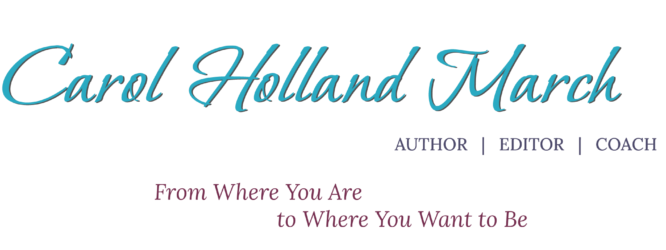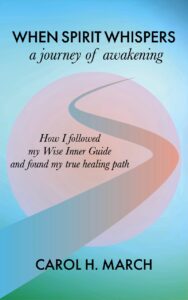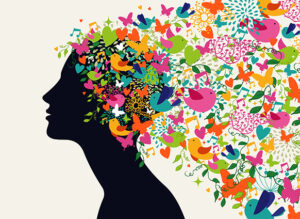
I have always written visionary fiction. It wasn’t as much a choice as how I perceived the world. Dreams, visions, alternate realities that peek from behind the veil, reincarnation, ghosts, messengers from other worlds—all the stories that dropped into my mind included these elements. When I sat down to write, I wondered how to incorporate them. What was I writing? Science fiction? Fantasy? Magical realism? As it turned out, all of the above.
As old as recorded literature, visionary and metaphysical fiction is now considered a sub-genre of speculative fiction, along with science fiction, fantasy, and horror.
In the Iliad and Odyssey, spirits spoke freely and generally interfered in the lives of mortals. In The Divine Comedy, we learn how one visionary experienced the afterlife. H.P. Lovecraft made us feel the dread of cosmic horror. And Paulo Coehlo enchanted us with the story of a boy pursuing his dream as he learned about magic and alchemy in The Alchemist.
So what makes a story visionary?
The purpose, for one thing. All stories must engage and entertain, but not all stories encourage readers to expand their view of what’s possible. Visionary fiction tells us about places, times, and beings we cannot perceive with our five senses. A leap of faith is needed. It encourages readers to expand themselves, to explore their own depths and engage their imagination. Visionary stories tease our creative brains as they challenge us to seek for the line between real and unreal.
But how does that help us now? In today’s world of pandemic disease, racism, uncertainty, and polarization, what value could an imagined journey to a made-up world have?
A lot, actually. The best fantasies, myths, and fairytales speak from the unconscious. The language of the soul, they offer the wisdom of the twilight world couched in symbol and archetype. They speak of the emotional, the intuitive, and the underlying connectedness of all life. Our frazzled minds may not understand, but our hearts do.
To solve personal and societal problems, we need new perspectives. The old ways are crumbling and traditional solutions have driven us farther apart. So why not look to visionary literature for clues?
To expand individual consciousness, a person turns inward. This is shadow work, the search for what was denied. Jealousy, anger, blame, fear, competition, dishonesty—all the emotions and impulses we prefer to ignore—end up in the shadow. If not attended to, they re-appear at the worst possible moment, causing us to say and do things we regret. Think of all the acts of violence perpetrated by people described as “quiet, polite, never caused any trouble.”
Only as we accept our “negative” emotions can we attain deeper levels of insight. Only then can our creativity blossom.
To face the shadow standing at the cusp of light and dark requires commitment and intention. We must be brave. Admit we’re not perfect. And make the journey down into ourselves. Into our bodies. Our past.
In my meditations, the entrance to the underground appears as a cave, sometimes a crack between two rocks in the desert. Like the shamans of old, to notice the door is to be invited to enter. Anyone can do it, even though most walk on by.
If we choose not to enter, we can hang on to our established beliefs. The trick is that what we don’t recognize within will be met outside. To heal the shadow in ourselves and society, we need to acknowledge what is uncomfortable. Climb down off that mountain of certainty. Which is exactly what the best visionary shows us how to do.
If we want to participate in healing the global changes causing so much fear and confusion now, being aware of our personal shadow is a good first step.
Another step is to notice what in us is similar to what we judge on the outside. For most people, this is a tough one. I have struggled with it. It means the end of blame and judgement. A tough one.
Which is why the journey to fantasyland, the underground, or the next star system is replete with struggle. Trials and tribulations. Dead ends. Attacks of the zombies or lizard people. It’s hard. Not everyone makes it. That’s why we read about it. We wonder, if we find the courage to go, will we make it?
For the journey to be complete, the hero must return with the treasure. Which may not be a gold ring, but something better. Knowledge. Perspective. Creativity. And eventually, the ability to look back with satisfaction. As Bilbo the hobbit said, “There and back again.”
We go into the darkness to bring back the light.
To read one of my visionary short stories, originally published in ABQinPrint, go here.
 By now, we thought our lives would have settled into whatever the “new normal” turned out to be. That doesn’t ring quite true. Not with a new virus strain, economic and political challenges, and warm weather that is both pleasant and a harbinger of an uncertain future.
By now, we thought our lives would have settled into whatever the “new normal” turned out to be. That doesn’t ring quite true. Not with a new virus strain, economic and political challenges, and warm weather that is both pleasant and a harbinger of an uncertain future.



 I thought my dog Buddy would enjoy a companion because he loved playing with other dogs at the dog park. But when I brought Zena home one scorching August day in 2010, I learned I was wrong. Buddy was jealous, annoyed, and intimidated by this big Shepherd/heeler female who had suddenly appeared in his kingdom.
I thought my dog Buddy would enjoy a companion because he loved playing with other dogs at the dog park. But when I brought Zena home one scorching August day in 2010, I learned I was wrong. Buddy was jealous, annoyed, and intimidated by this big Shepherd/heeler female who had suddenly appeared in his kingdom.








 A good question, posed in a graduate social psychology class, and an eye-opener for me.
A good question, posed in a graduate social psychology class, and an eye-opener for me.
 Well, here we are. It’s been a month since I’ve attended a meeting outside my home. A month since I’ve taught in a classroom. Since I’ve had lunch with a friend, gone to a movie or stood in line at the grocery store. Even for an introverted writer who loves solitude, staying home this much gets weird.
Well, here we are. It’s been a month since I’ve attended a meeting outside my home. A month since I’ve taught in a classroom. Since I’ve had lunch with a friend, gone to a movie or stood in line at the grocery store. Even for an introverted writer who loves solitude, staying home this much gets weird.
 Do you believe in miracles?
Do you believe in miracles?  Yes, we love the holidays. Family, food, out of town guests, parties, long lunches, shopping, and evergreen trees in the living room. Of course we do. But it can be overwhelming. Too much family, food, guests, parties, lunches, and shopping. What happened to the tree? Is it still tied to the roof of the car?
Yes, we love the holidays. Family, food, out of town guests, parties, long lunches, shopping, and evergreen trees in the living room. Of course we do. But it can be overwhelming. Too much family, food, guests, parties, lunches, and shopping. What happened to the tree? Is it still tied to the roof of the car?